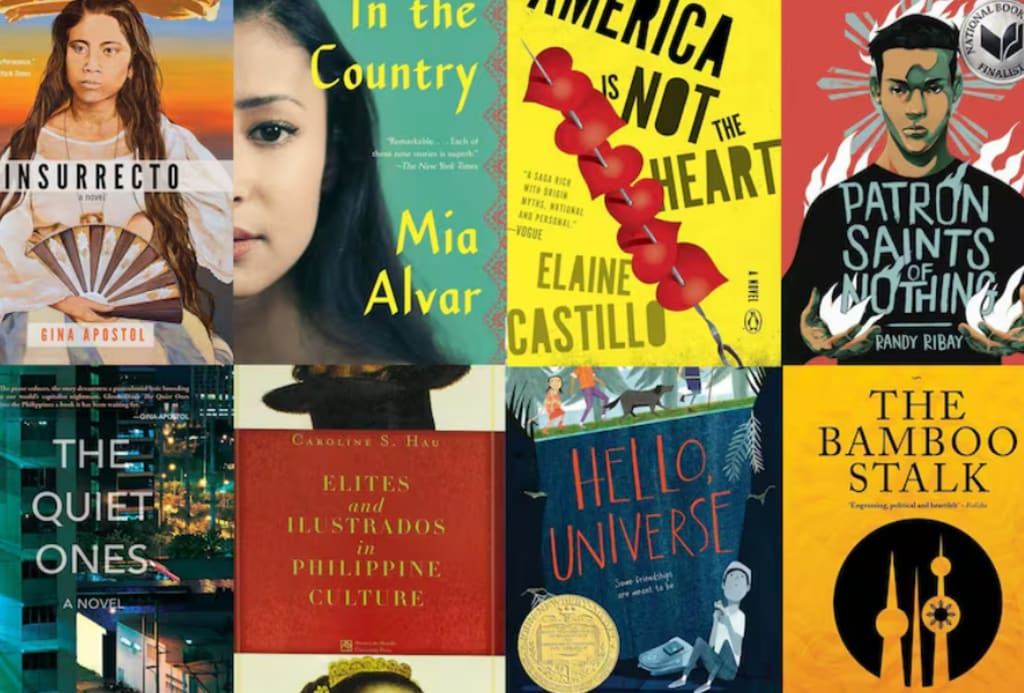Young Adult Literature in English or Filipino
Finding the Balance Between Cultural Identity and Global Reach

Young adult literature exists in the liminal space between childhood and young adulthood and offers stories that reflect the protagonist’s struggles. The issue of whether literature for young adults should be in English or Filipino remains contentious in the Philippines up to this date. The issue at hand is not merely that of language but goes deeper to encompass cultural affiliations, inclusiveness, and the progression of literature in the nation.
English has played a significant role in both the Filipino education system and the media. English as an international language provides young adult literature a wide coverage of the community and recognition. Erin Entrada Kelly and Randy Ribay prove that Filipino stories are universal. Their works are all written in English language so they can capture a global audience while giving a glimpse of Filipino culture.
But on the other hand, writing young adult literature in Filipino has its own set of perks. It gives people a sense of belonging to their culture and ensures that the language is kept as diverse as possible. Young adult authors from the Philippines such as Rin Chupeco and Manix Abrera offer works that are not mere translations of these themes into the Filipino experience and its challenges. When young readers can identify with the language used in the text, it helps to boost their sense of pride and language belonging.
Young Adult Literature and the Power of Language
The language used in young adult literature is crucial as it shapes the narratives in different ways. For Filipino young adult author, there is the tension of trying to be as real as possible without compromising readability. For instance, Andrew Jalbuena Pasaporte, the author of the middle grade book titled “Gimo Jr. and the Aswang Clan”, makes a persuasive speech on why people should write in Filipino. His works are quite versed in local myths and, therefore, well appreciated by readers who are familiar with such stories and deliveries in their native language.
This means that when young adult literature is written in Filipino, it is possible to elaborate on topics relevant to the youths in the Philippines. Elements like family relations, socio-economic problems, and identity searching are depicted in a very realistic manner that may not be easily conveyed in subtitles. The language used by Filipino young adult author provides readers with clearer reflections of the young adult experiences than the foreign perspective could ever provide.
On the other hand, young adult literature in English allows Filipino authors to participate in international discussions. It allows them to write about timeless topics like love, rebellion, and finding one’s identity but with Filipino subtexts. Thus, this duality proves beneficial in overcoming cultural differences and enhancing the readers’ understanding of one another.
Balancing Tradition and Modernity
Therefore, the desire for Filipino young adult authors should be to strike a middle ground between tradition and the contemporary world. Therefore, embracing bilingualism makes it possible for authors to offer their work to a diverse market without losing their cultural values. Schools and libraries can contribute to this by having both English and Filipino young adult literature on their shelves, so young readers can have diverse sources to read from.
Promoting translations of best-selling young adult novels from English to Filipino and Filipino to English can also be very effective. This not only extends the readership but also enhances the cultural horizon of the society as a whole. Such is the role of translation to make the stories written in English or Filipino circulate in every part of the archipelago, making literature as that which binds.
Lastly, the argument on whether young adult literature should be in English or Filipino recalls the cultural struggles of identity and the tension between globalization and localization. Every language has its advantages and potential for communication. Modern literature needs a new voice and perspective; therefore, authors, educators, and readers should commit to the inclusive focus. In this manner, the publishers safeguard the healthy future of young adult literature and make YA literature relevant and inspiring to the future generation.
About the Creator
Enjoyed the story? Support the Creator.
Subscribe for free to receive all their stories in your feed. You could also pledge your support or give them a one-off tip, letting them know you appreciate their work.





Comments
There are no comments for this story
Be the first to respond and start the conversation.